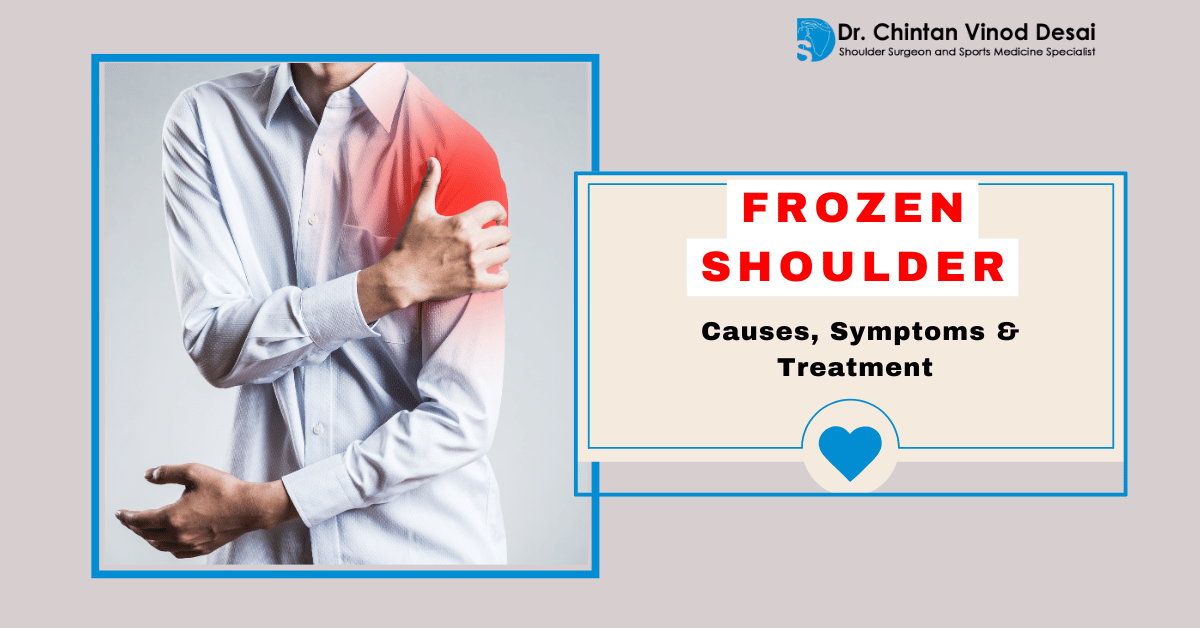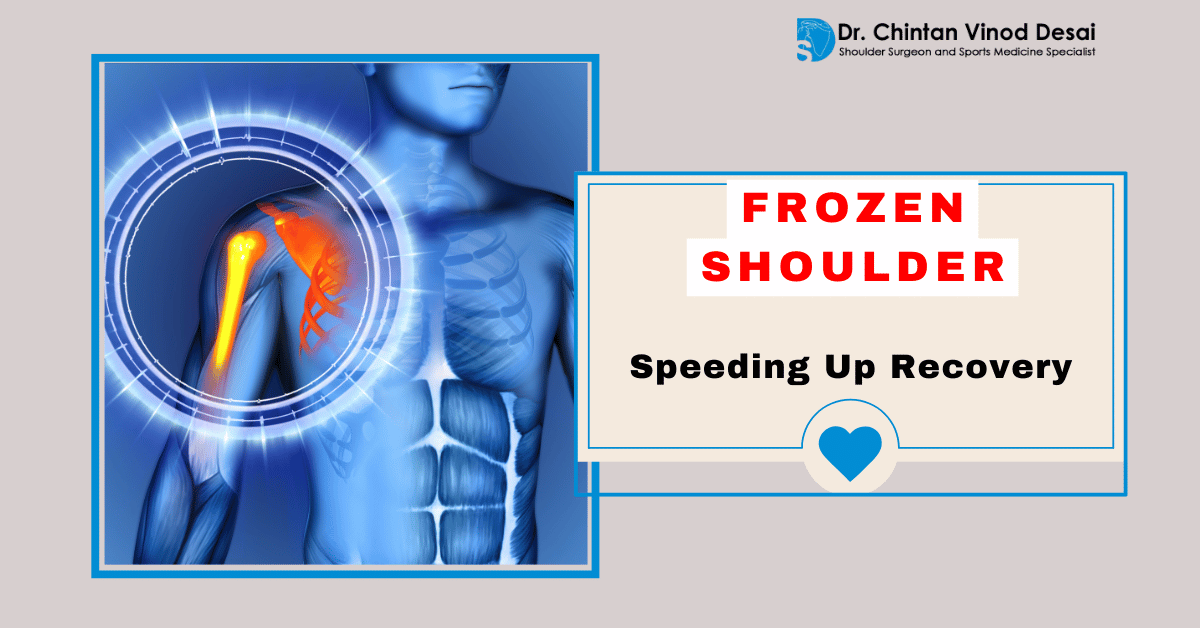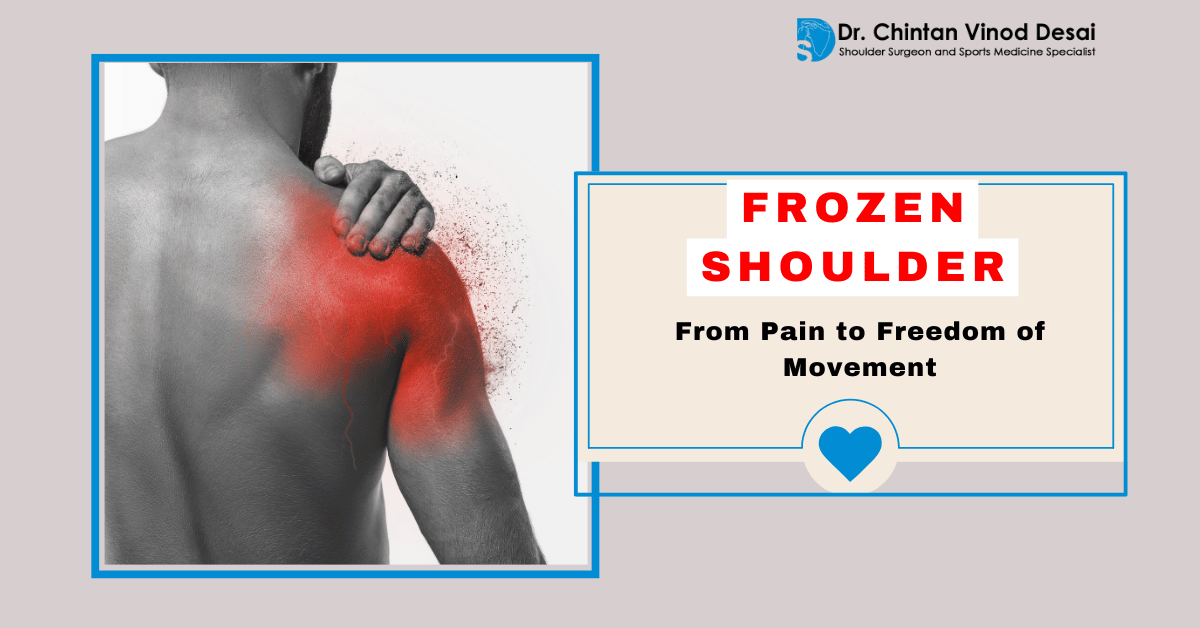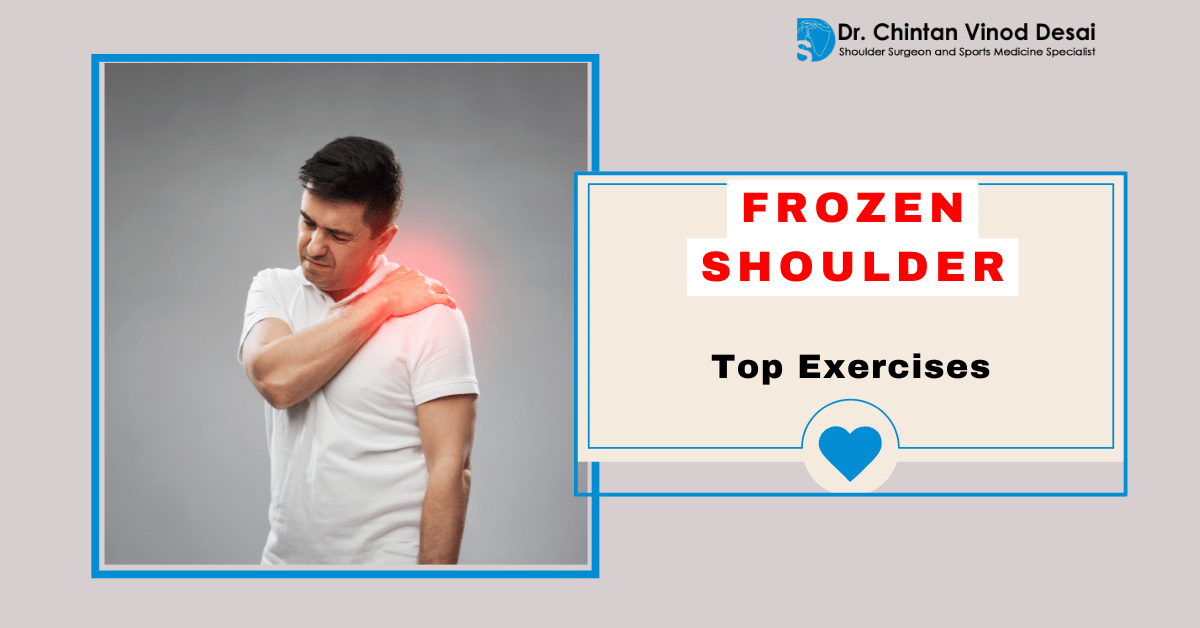Frozen Shoulder Treatment In Mumbai
Frozen shoulder is a common condition that affects many adults, especially those between the ages of 40 and 60. It leads to pain, stiffness, and difficulty moving the shoulder joint. Simple tasks like lifting your arm, combing your hair, or reaching behind your back become painful and limited.
This blog will explain what frozen shoulder is, why it happens, its common symptoms, and the modern treatment options available today. You will also learn when to seek medical advice and how the right specialist can help you recover mobility and live pain-free.
What is Frozen Shoulder?
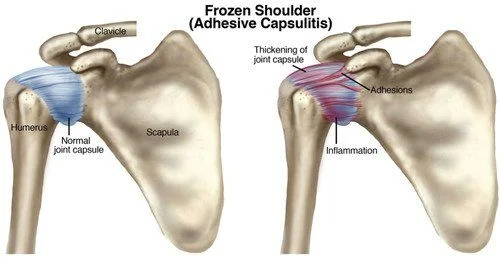
This also known as adhesive capsulitis, occurs when the tissue around the shoulder joint becomes thick and tight. This limits movement and causes pain. The condition often develops slowly and goes through stages, each lasting for months.
Stages of Frozen Shoulder:
- Freezing stage: Pain starts and shoulder movement becomes limited.
- Frozen stage: Pain may reduce but stiffness increases. Movements become restricted.
- Thawing stage: Shoulder movement gradually improves.
The entire process can last from one to three years if left untreated.
Causes of Frozen Shoulder
The exact cause is not always clear, but several factors increase the risk of developing frozen shoulder:
- Injury or surgery: Immobilizing the shoulder after surgery or a fracture can trigger stiffness.
- Diabetes: People with diabetes are more likely to develop frozen shoulder.
- Other health conditions: Heart disease, thyroid problems, and Parkinson’s disease can raise the risk.
- Age and gender: It is more common in people between 40 and 60 years, and women are slightly more affected.
- Lack of movement: Keeping the shoulder still for a long time due to pain or injury can lead to the condition.
Symptoms of Frozen Shoulder
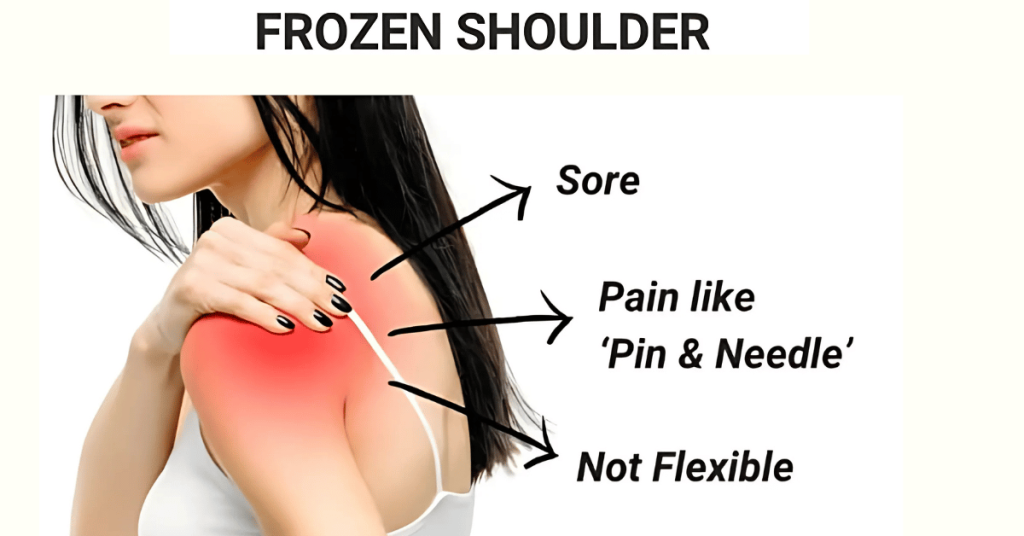
The main symptoms are:
- Persistent pain: Dull or aching pain inside and around the shoulder.
- Stiffness: Reduced range of motion, making daily tasks hard.
- Sleep disturbances: Pain often worsens at night, disturbing sleep.
- Weakness: Muscles around the shoulder may weaken due to reduced activity.
These symptoms can affect both personal and professional life. Early recognition helps in faster recovery.
Diagnosis
A shoulder specialist diagnoses frozen shoulder through a physical exam and medical history.
Common diagnostic steps include:
- Checking how far you can move your arm actively and passively.
- Imaging tests like X-rays, ultrasound, or MRI to rule out other conditions such as arthritis or rotator cuff tears.
Early diagnosis is key to preventing long-term stiffness.
Modern Treatment Options
Frozen shoulder can improve over time, but treatment speeds up recovery and relieves pain. Modern approaches include both non-surgical and surgical options.
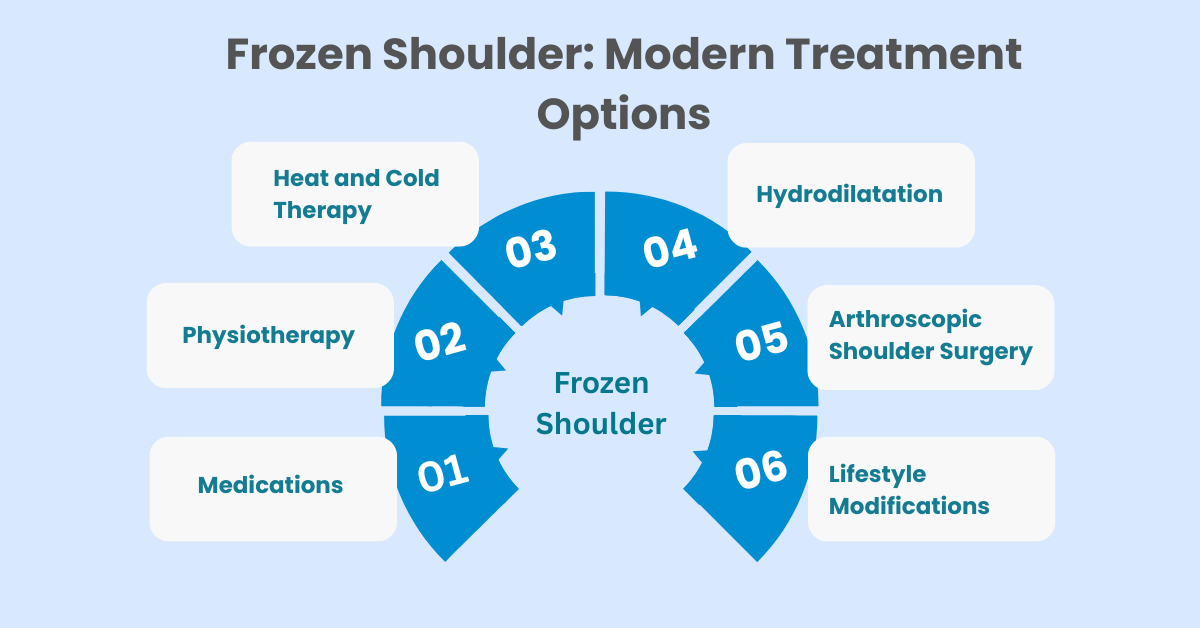
1. Medications
- Pain relievers and anti-inflammatory drugs reduce pain and swelling.
- Corticosteroid injections provide short-term relief for severe pain.
2. Physiotherapy
- Gentle stretching and strengthening exercises improve mobility.
- A physiotherapist guides you through safe techniques that restore function.
- Regular home exercises are crucial for progress.
3. Heat and Cold Therapy
- Applying heat before exercises relaxes stiff tissues.
- Ice packs help reduce pain after activity.
4. Hydrodilatation
- A procedure where sterile fluid is injected into the shoulder joint.
- This expands the joint capsule and improves movement.
5. Arthroscopic Shoulder Surgery
- For severe cases that do not respond to other treatments.
- A minimally invasive procedure where a surgeon uses a tiny camera to release the tight capsule.
- Leads to faster recovery and less scarring compared to open surgery.
6. Lifestyle Modifications
- Staying active within limits prevents stiffness from worsening.
- Managing underlying health conditions like diabetes supports recovery.
Doctor Introduction
Dr. Chintan Vinod Desai is a consulting Shoulder Surgeon practicing in Tardeo, Parel, Dadar, Mumbai Central, Lalbaug, Santacruz, and Mulund, Mumbai. He is experienced in performing advanced techniques in shoulder surgery. His expertise covers shoulder conditions such as instability, frozen shoulder, impingement, rotator cuff tears, shoulder arthritis, and calcific tendonitis. With his guidance, patients receive comprehensive care focused on restoring function and reducing pain.
FAQs
1. How long does frozen shoulder take to heal?
It can take one to three years without treatment. With proper care, recovery is faster.
2. Can frozen shoulder come back after treatment?
It rarely returns in the same shoulder, but it may develop in the other shoulder.
3. Is physiotherapy painful for frozen shoulder?
Some discomfort is expected, but exercises are designed to improve mobility without causing severe pain.
4. Do I always need surgery for frozen shoulder?
No, most patients improve with medications, injections, and physiotherapy. Surgery is for severe cases.
5. Can diabetes make frozen shoulder worse?
Yes, people with diabetes often experience more severe symptoms and longer recovery times.
Conclusion
Frozen shoulder is a painful and limiting condition, but it can be managed successfully with modern treatments. Early diagnosis, guided physiotherapy, and expert care ensure better outcomes. You do not have to live with shoulder pain or stiffness.
If you notice persistent pain or restricted movement, consult a shoulder specialist like Dr. Chintan Vinod Desai. With the right treatment plan, you can regain mobility and return to your normal life.

